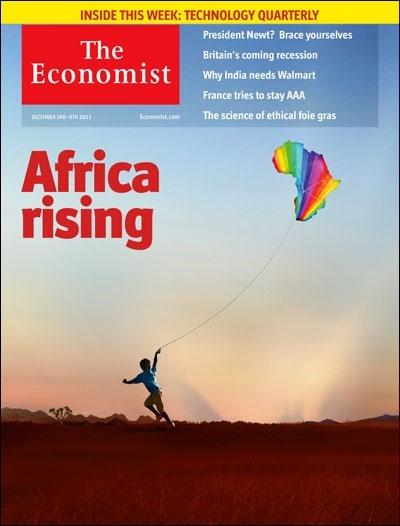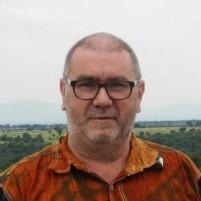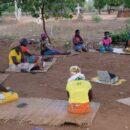Africa’s glass is both half full and half empty – By Simon Freemantle

 Acknowledgment of Africa’s ongoing economic revival is becoming more widespread. Hardly a week passes without a notable report or conference extolling the continent’s growth performance and structural potential, made more pronounced by the economic malaise of much of the advanced world. Earlier this month, the Institute for International Finance (IIF) published its first-ever regional overview on Sub-Saharan Africa. The Economist magazine in December last year featured the title “Africa Rising” on its front cover, an about turn from its 2000 labeling of Africa as the “Hopeless Continent”. Home to several of the world’s fastest-growing economies, Africa is increasingly difficult to ignore.
Acknowledgment of Africa’s ongoing economic revival is becoming more widespread. Hardly a week passes without a notable report or conference extolling the continent’s growth performance and structural potential, made more pronounced by the economic malaise of much of the advanced world. Earlier this month, the Institute for International Finance (IIF) published its first-ever regional overview on Sub-Saharan Africa. The Economist magazine in December last year featured the title “Africa Rising” on its front cover, an about turn from its 2000 labeling of Africa as the “Hopeless Continent”. Home to several of the world’s fastest-growing economies, Africa is increasingly difficult to ignore.
Yet, the effect of global sentiment springing so dramatically from Africa’s distorted past image of war, disease and poverty to one of growth, opportunity and optimism is creating a binary discussion which leaves little space for real depth of understanding. I am often asked whether I am an “Afro-optimist” or an “Afro-pessimist”. Naturally, when forced to make this call, my leaning is unequivocally to the former – I believe deeply in Africa’s current resurgence, and have great confidence in the ability of its people, across its 54 states, to negotiate the myriad challenges faced in engineering a brighter future. But this is not to say that the path will be a smooth or straightforward one and an appreciation of the depth of the challenges still faced does not imply a lack of faith in the continent’s ability to surmount them.
As a result, we need to move from the somewhat simplistic question of whether Africa’s glass is “half full” or “half empty” to engage more constructively with its clear merits and persistent challenges, and move towards an understanding of how the continent can reach the critical next level of growth. Core to this level is the need to increasingly diversify economies away from reliance on un-beneficiated natural resources, to provide sustenance, as well as institutional support (primarily through education and employment) for a rapidly swelling population (expected to increase by 200 million in the next decade), to build the infrastructure necessary to boost intra-regional trade and create cities capable of absorbing the roughly 400 million Africans that will be born in or migrate to urban hubs in the next two decades.
Perhaps most critical is the necessity to craft more inclusive and equitably distributed growth. The gulf in income across Africa is becoming more pronounced, and the socio-economic responsibilities, let alone threats, that this gives rise to must be a central feature of future plans. While North Africa’s “Arab Spring” will not systemically spread south, political systems will have to become more nimble to negotiate the demands of an increasingly youthful, urbanised and connected populace. The risks, both foreseeable and unknown, that accompany these inevitable shifts may not detract from Africa’s allure, but they certainly imply that a more nuanced and critical approach to the continent is necessary.
An appreciation of Africa’s extraordinary agricultural potential is emblematic of this dual challenge. On the one hand, awareness of this potential (Africa is home to roughly two-thirds of the world’s available cropland) is essential to attract critical investment towards equipping Africa’s predominantly subsistence farmers with the means to increase yields, store and transport goods to local, regional and international markets. Yet, a powerful array of challenges stands in the way of realising this potential, not least of which is the fact that less than 10 percent across Africa is held under formal land tenure (thus allowing the displacement of communities in the interests of clearing land for commercial farming). Thus, an approach which engages with the opportunity in a manner which is sensitive to its latent pitfalls is essential.
While the adage that a “rising tide lifts all boats” will to an extent ring true, the enormity of the challenges inherent in reaching this next stage of growth means that some countries will prosper and others will undoubtedly falter. Today’s euphoria is also associated with a far greater awareness of the internal dynamics shaping Africa. While Africa’s successes will be beamed out to a grateful international audience, so too will its failings. Many African countries are arguably in a similar situation today where South Africa was at the dawn of its democracy – an international darling, feted for its reform path and glistening with hope. Viewed through this partial frame, South Africa’s “sad decline” (The Economist) has been pronounced. But for those with a more nuanced appreciation of the depth of challenges facing South Africa two decades ago, today’s travails are more readily understood.
To be sure, the thrust of the positivity around Africa’s prospects is perhaps necessary to blast through the very deeply negative impression the continent previously held throughout the international community. But we must soon move deeper, and analyse the continent inspired by a collective appreciation of its potential and a real and constructive engagement with its challenges.
Simon Freemantle is Senior African Analyst for Standard Bank,







Great article that highlights both the opportunity and risk that lies before this magnificient continent. There is so much to gain and so much to lose. I believe that the key to sustained economic growth and development must be more regionalised integration slowly creating bigger markets, improving infrastructure and growing intra-regional trade. We shouldnt just sit here wating for the world to come and invest and buy our products, in many instances the world is already here, we just need to introduce ourselves to each other.
[…] Source African Arguments.Simon Freemantle is Senior African Analyst for Standard […]
The question/issue as to whether Africa’s ‘glass is half full or half empty’ is notional in both form and context. The issue of immediate salience is whether the countries which comprise the African continent are governed with prescriptive administrative objectives designed to enhance the livings of all citizen nationals instead of the very very few who are at the apex of this oligarchical corrupt pyramid of governance which for the great part is designated to perpetuate waste and corrupt practice. When will the people of this continent rife with both natural and human resource get the leadership they sorely need and most definitely deserve? Countries which are governed/ruled by a narrow elite will be countries condemned to perpetual grief, poverty and a fundamental lack as to what constitutes a good life.
Absolutely fabulous. I am 100% in accord and commend you for a great, articulate article.
Thank you Victoria. There are many who are likely to cyclically benefit from the “hype” attached to Africa’s current growth momentum. Those more constructively engaged (and in it for the long haul) should guard against this boom and bust mentality and work to ensure that structural change begins to take firmer root.
[…] Freemantle, an Africa analyst with Standard Bank, wrote into “African Arguments†about the binary views the international community seems to favor when it comes to Africa. On “Africa in Transition,” John Campbell responded with an echo of Freemantle’s […]
[…] had not intended to come back to the Africa Rising debate for a while. But on my recent trip to Nigeria, Kenya, Tanzania and Uganda I was shocked at […]
[…] admin | February 8, 2013 | 0 Comments More I had not intended to come back to the Africa Rising debate for a while. But on my recent trip to Nigeria, Kenya, Tanzania and Uganda I was shocked at […]
[…] had not intended to come back to the Africa Rising debate for a while. But on my recent trip to Nigeria, Kenya, Tanzania and Uganda I was shocked at […]
[…] had not intended to come back to the Africa Rising debate for a while. But on my recent trip to Nigeria, Kenya, Tanzania and Uganda I was shocked […]
[…] had not intended to come back to the Africa Rising debate for a while. But on my recent trip to Nigeria, Kenya, Tanzania and Uganda I was shocked at […]